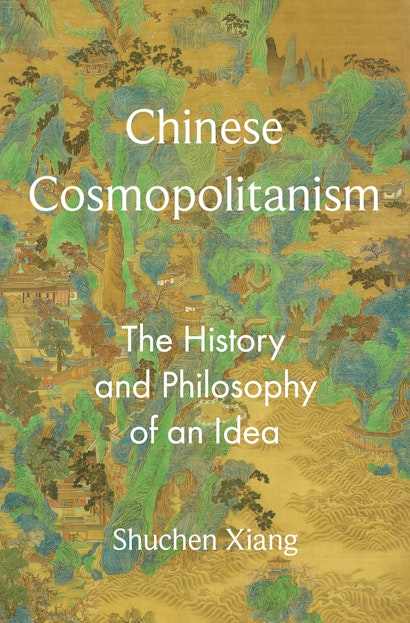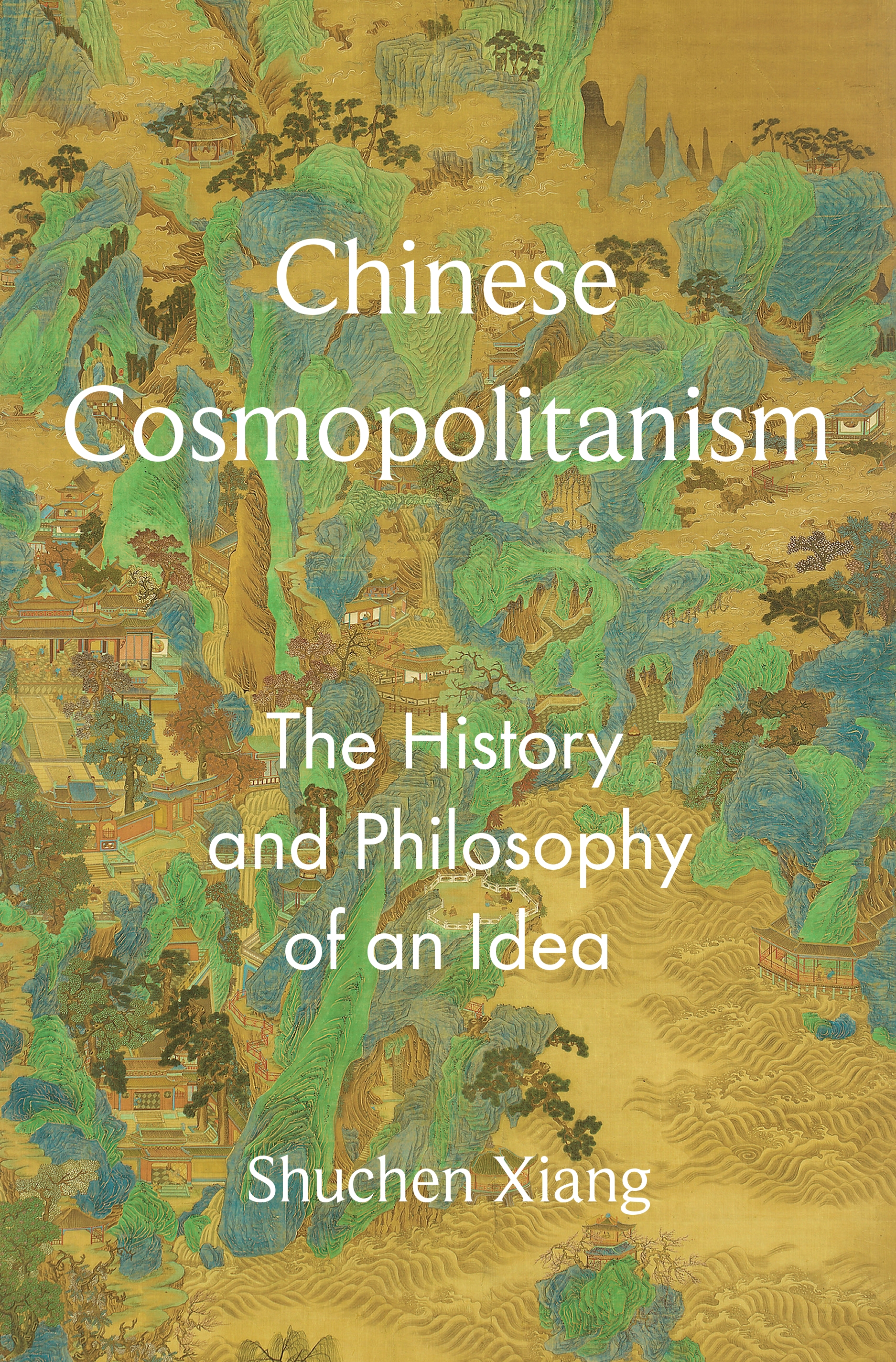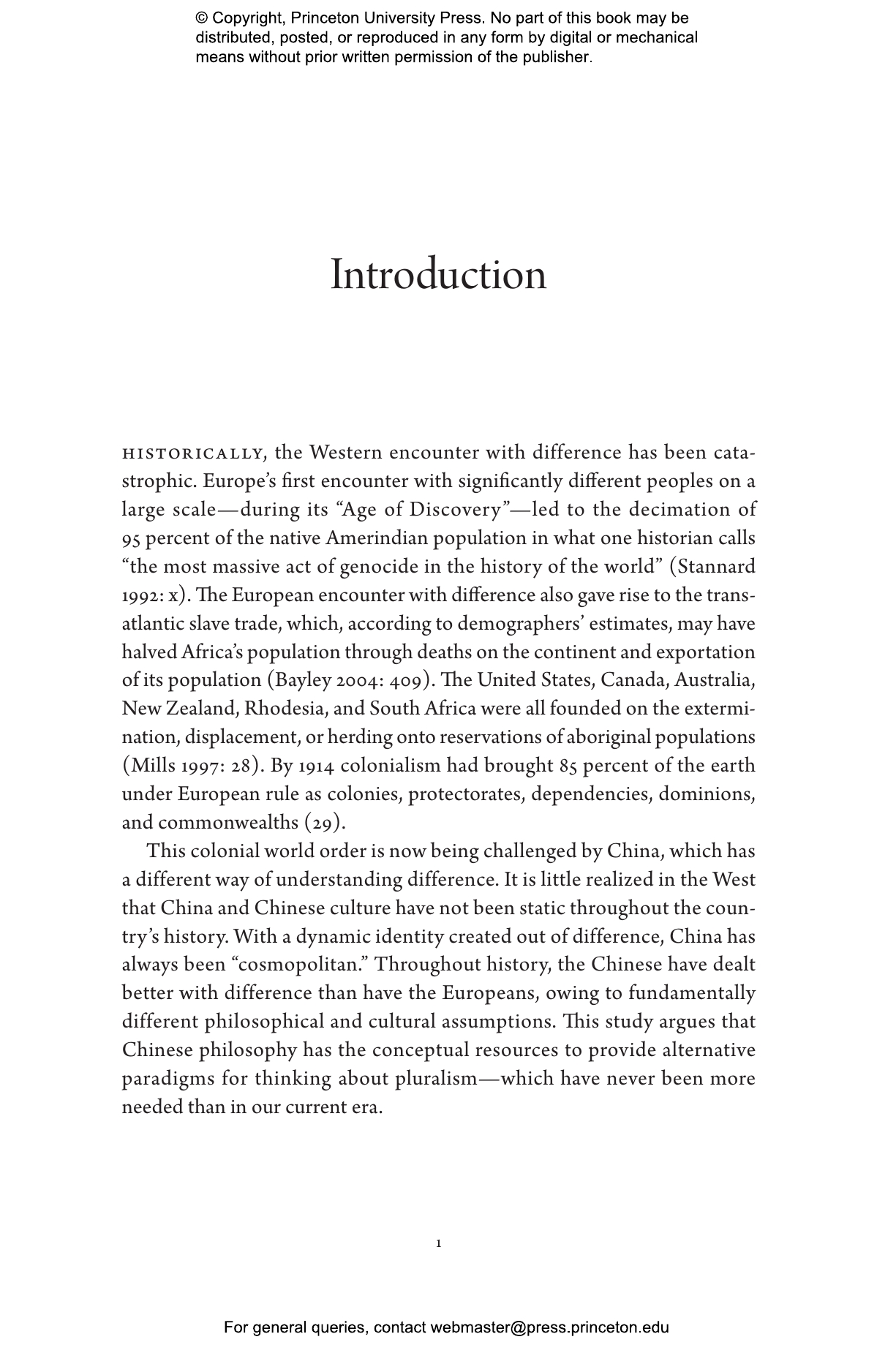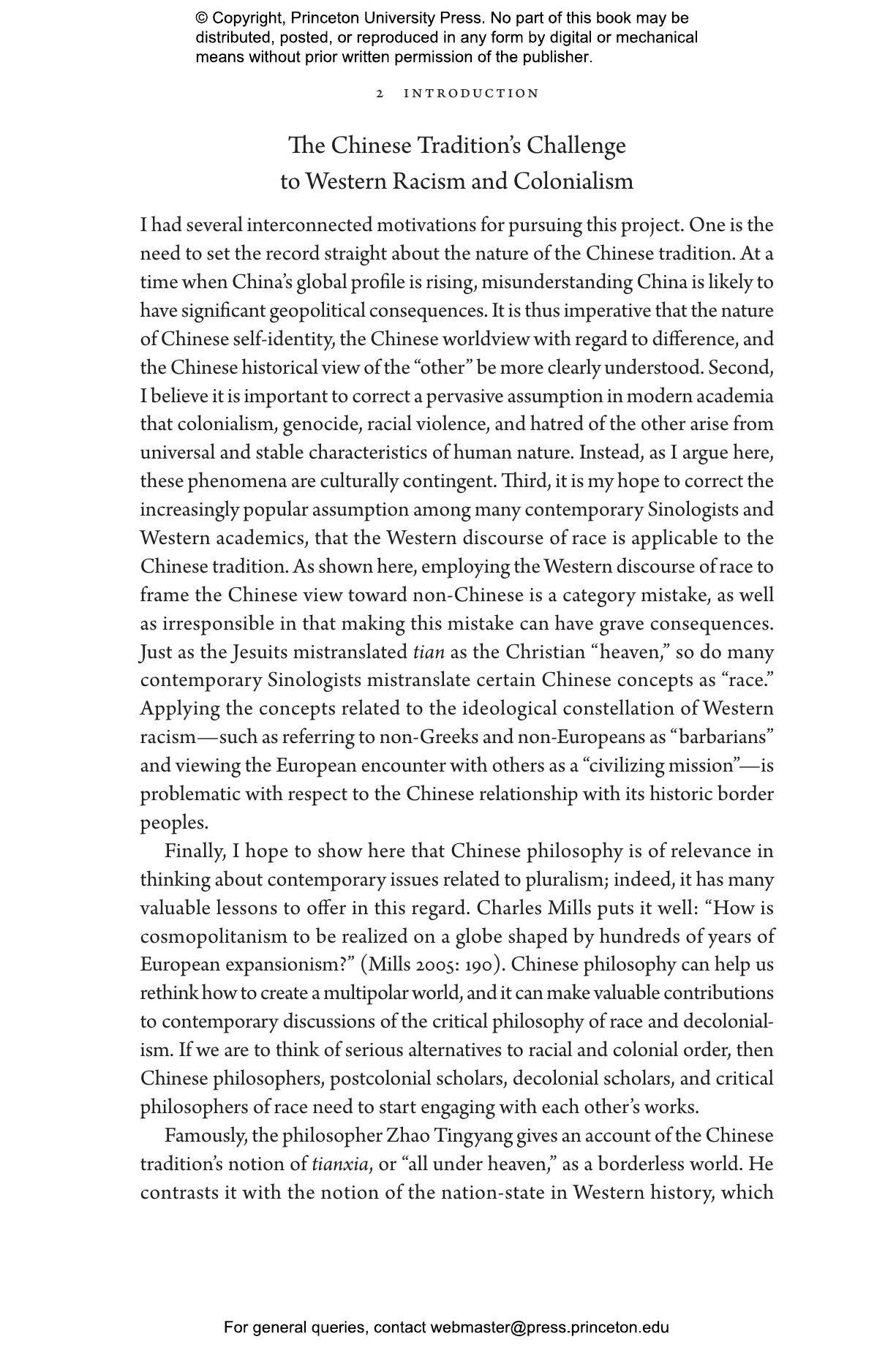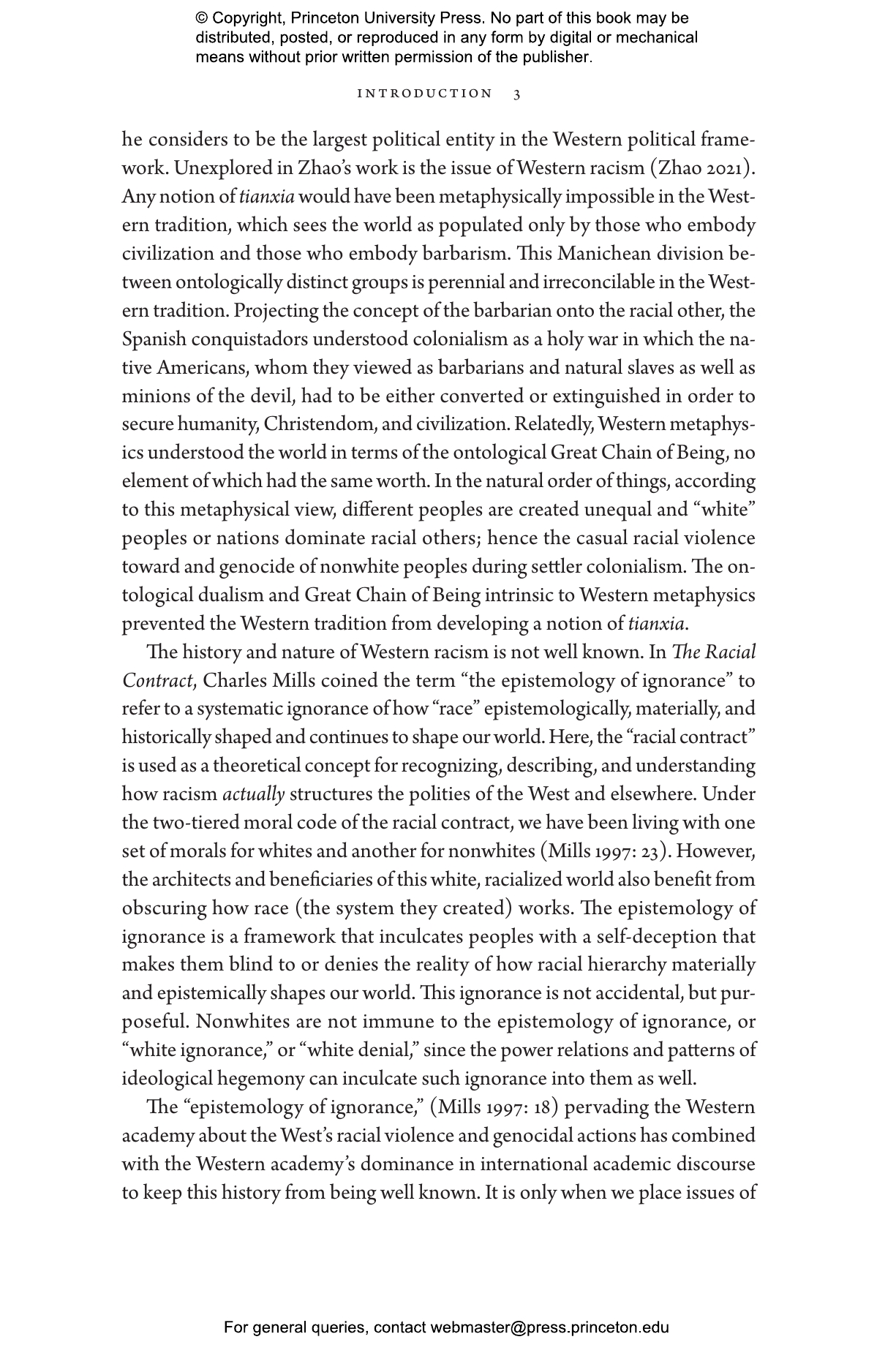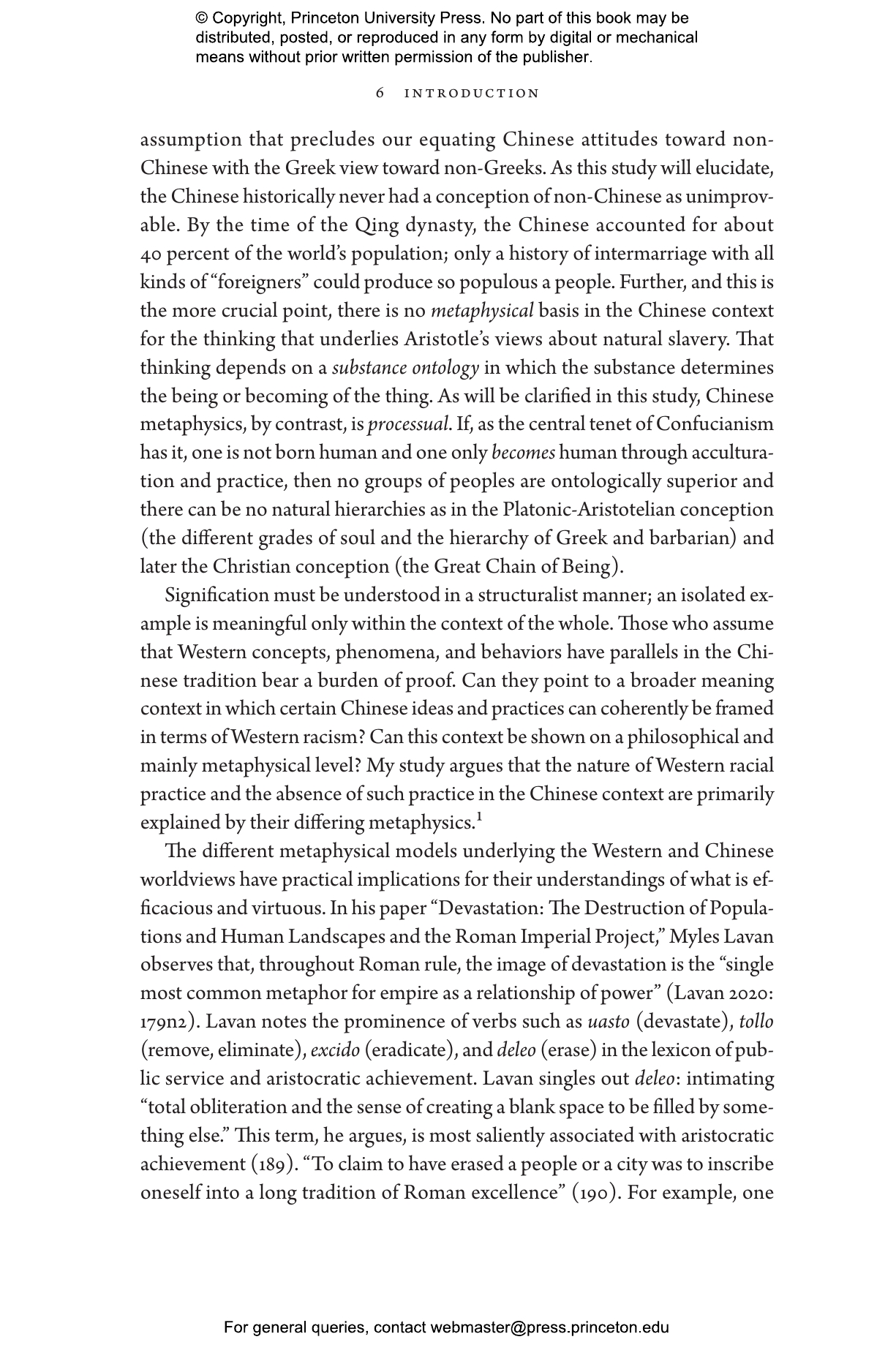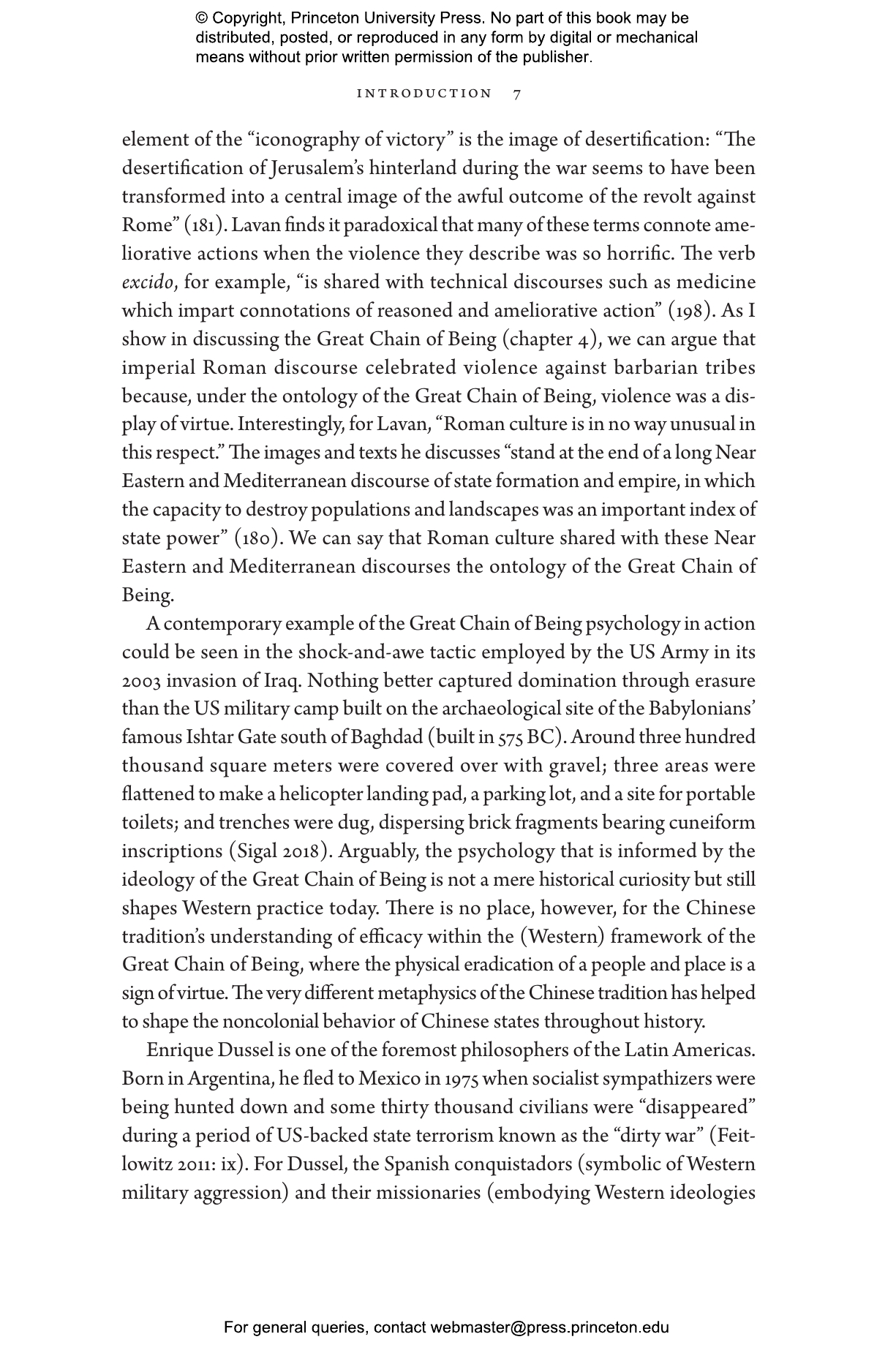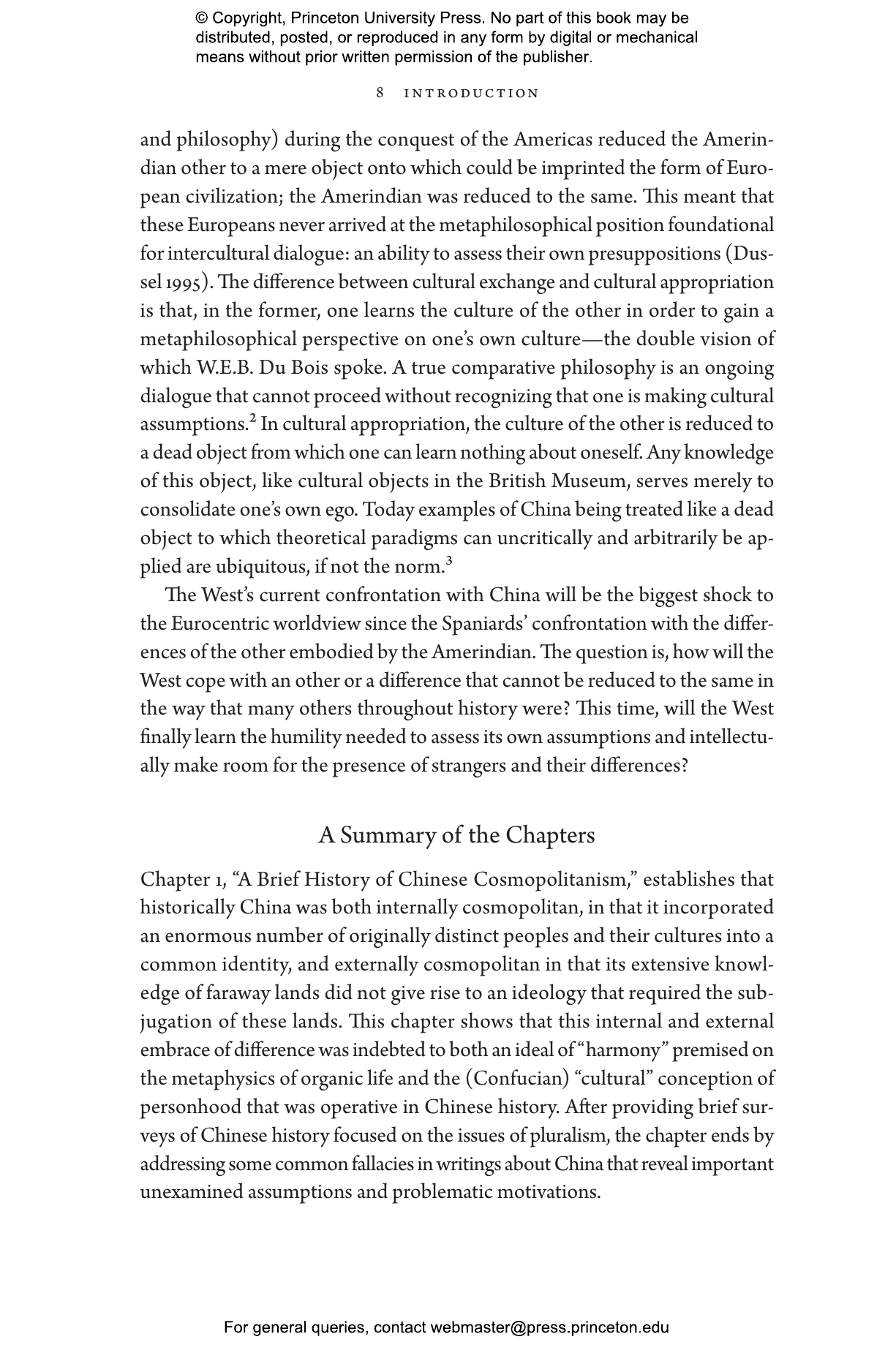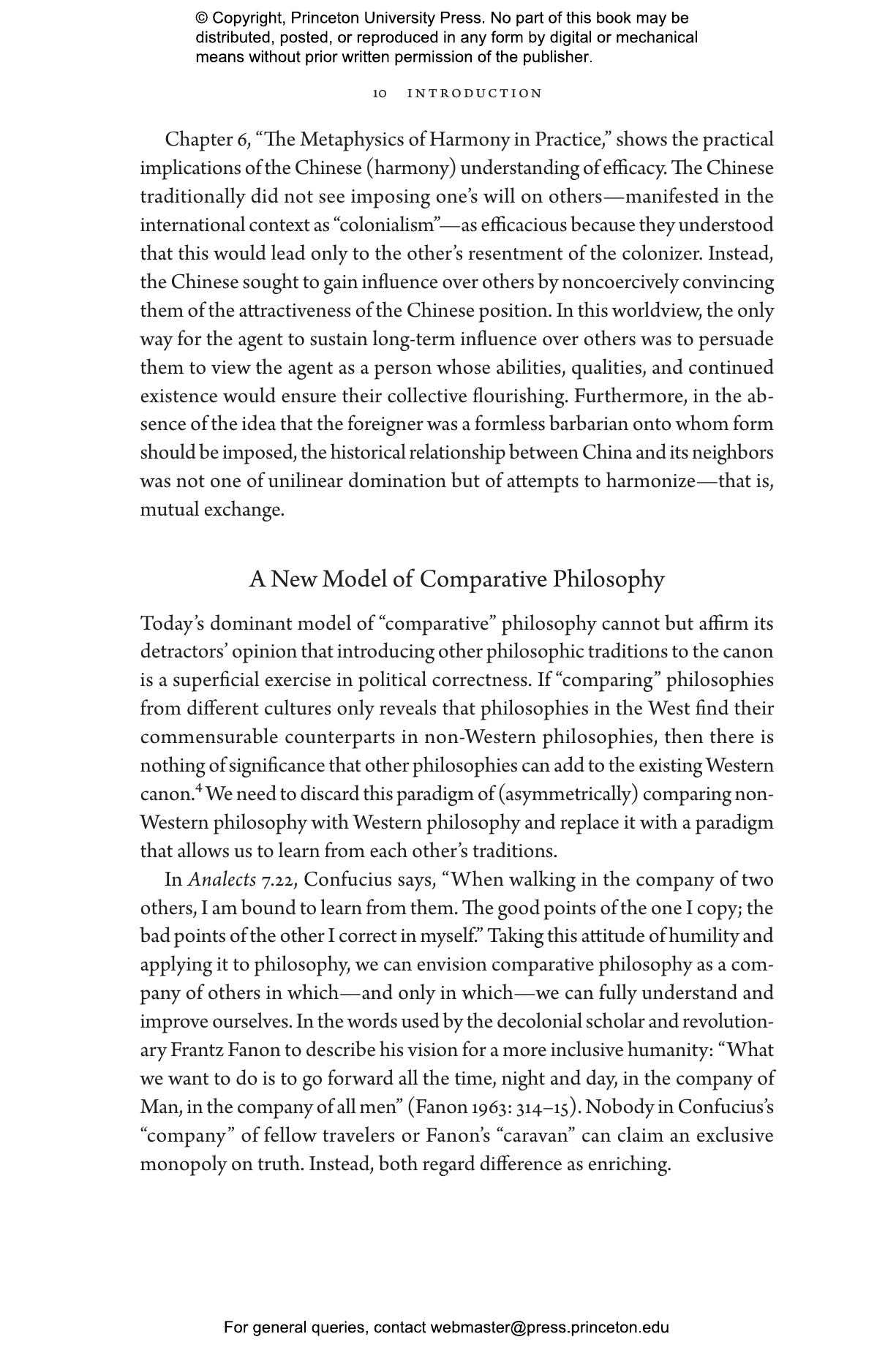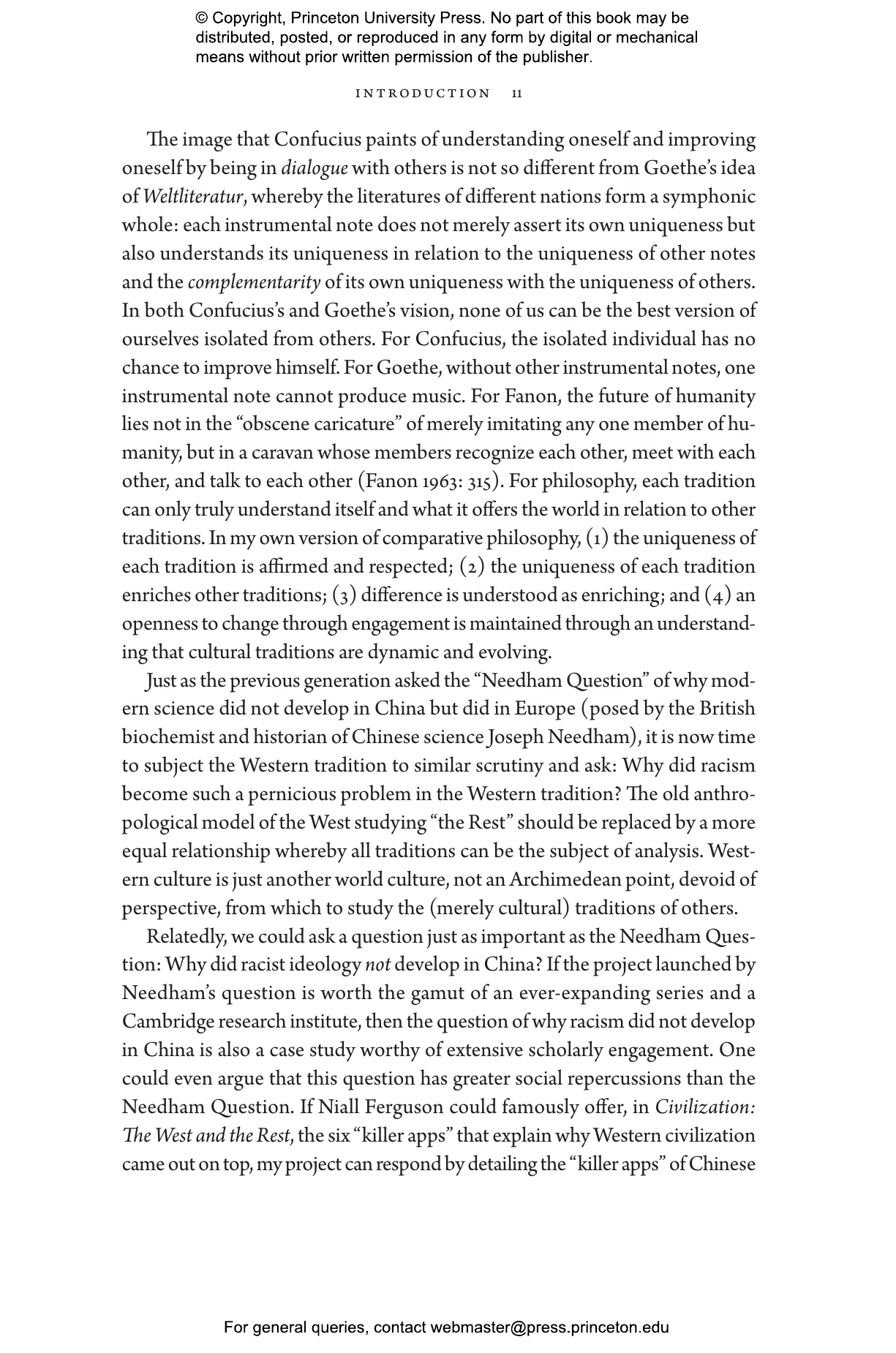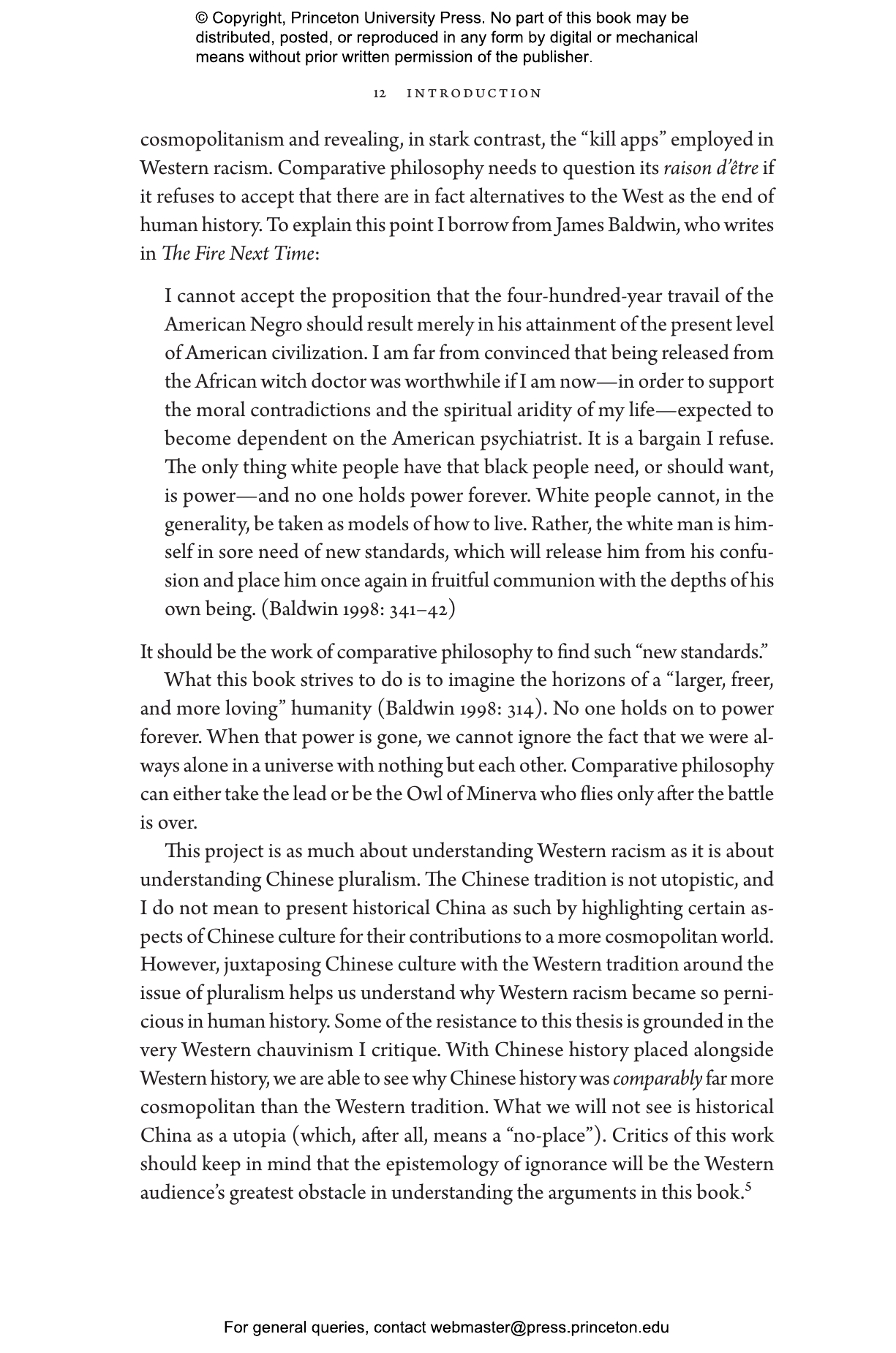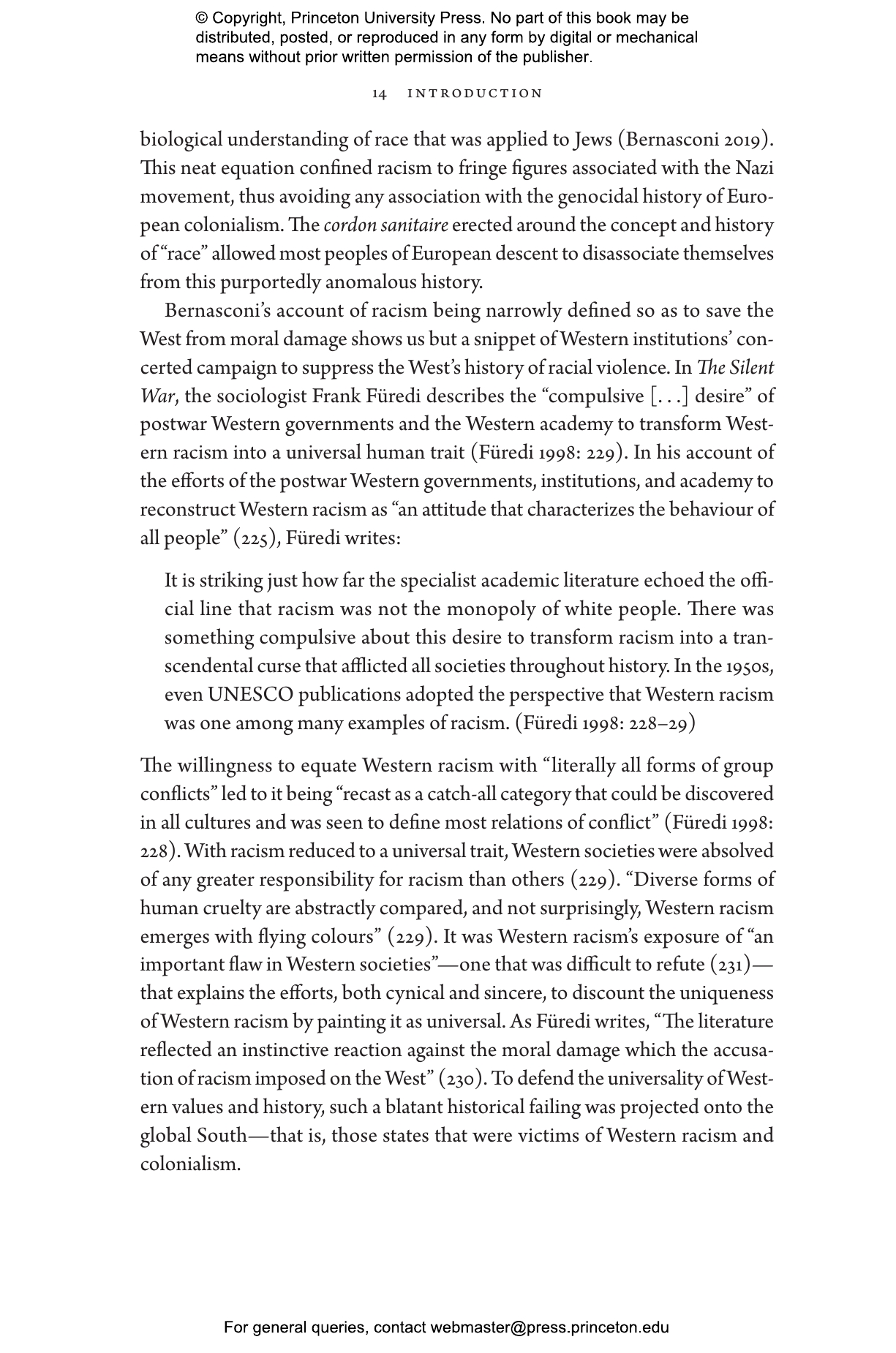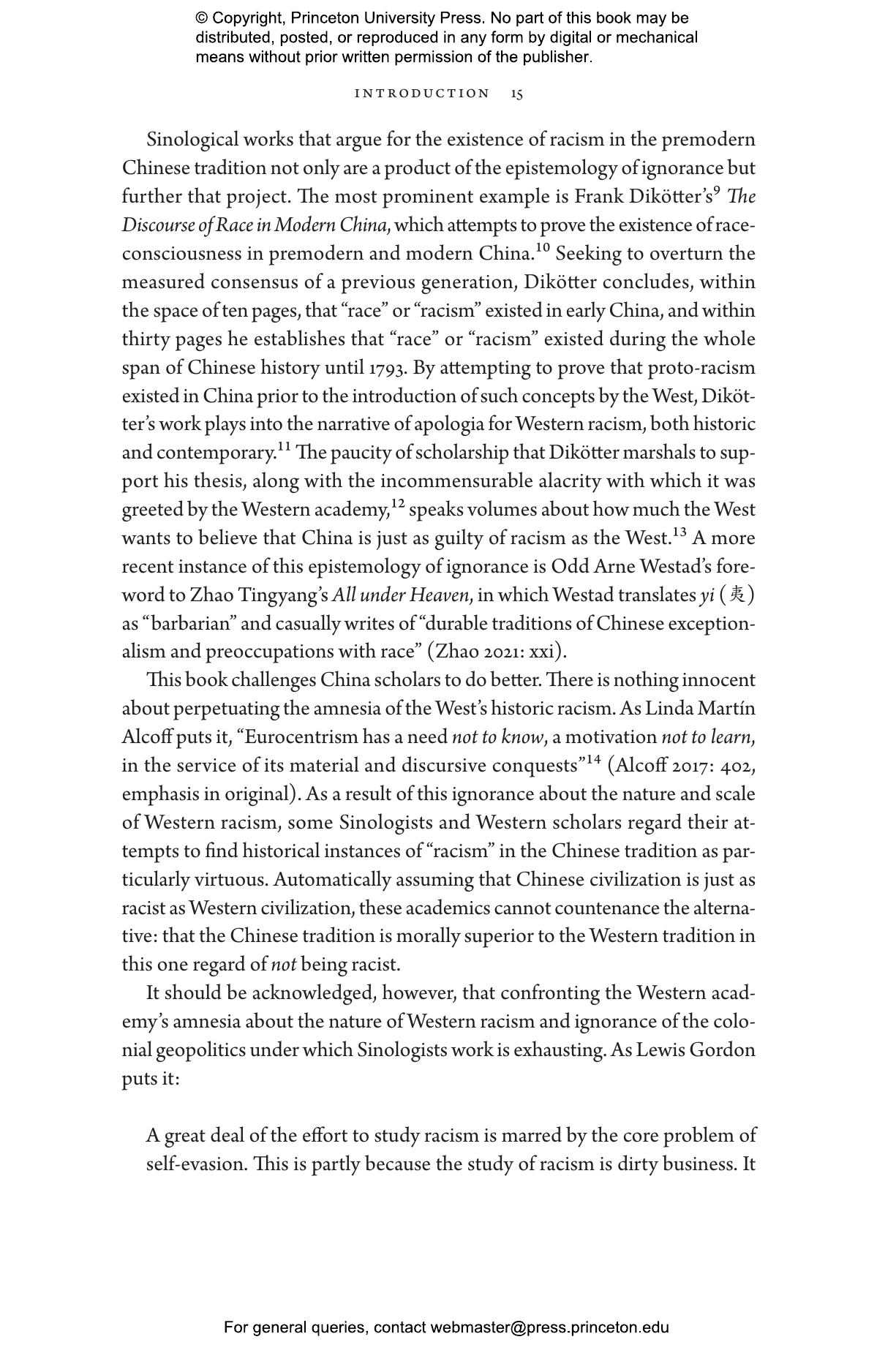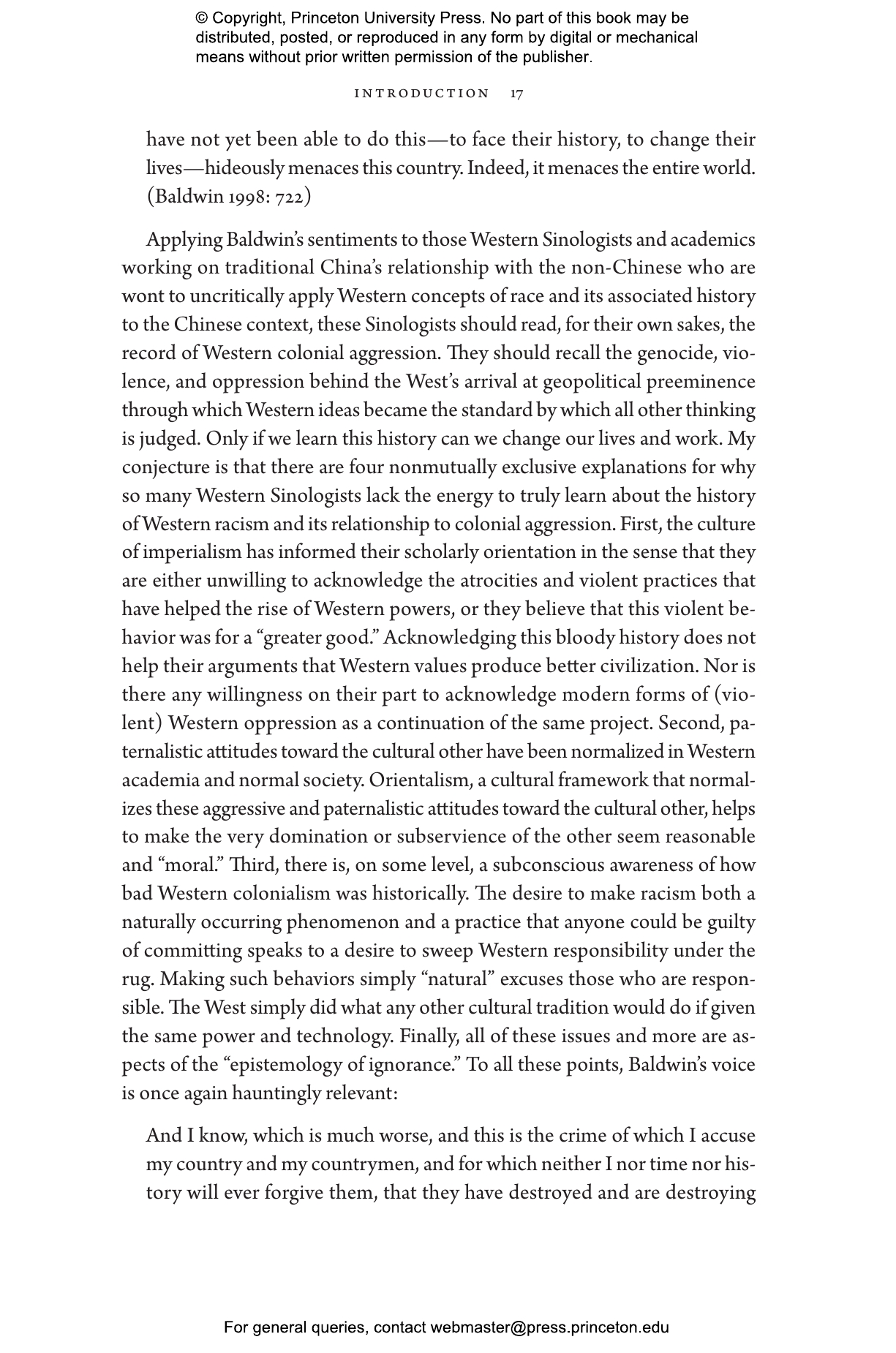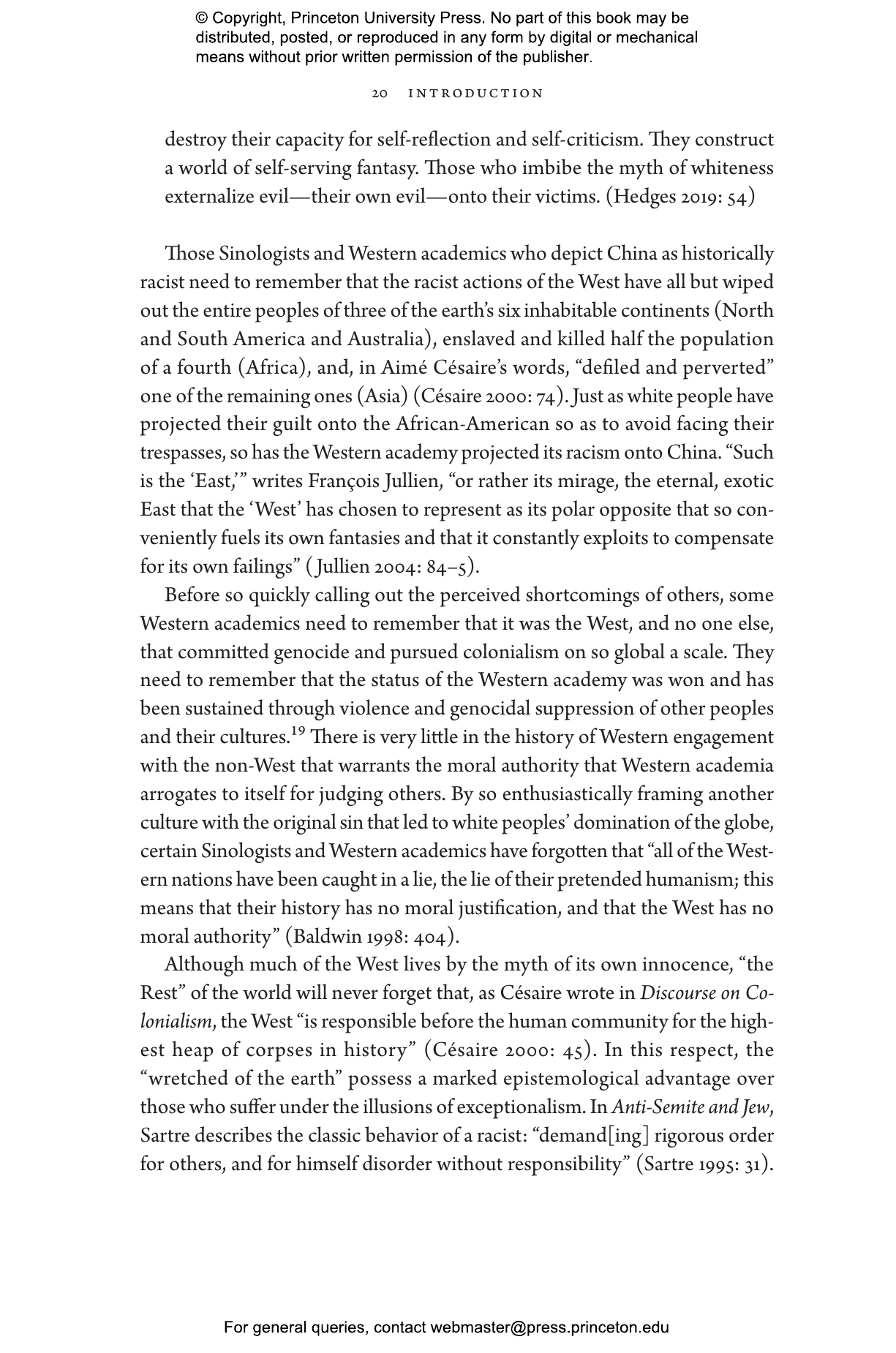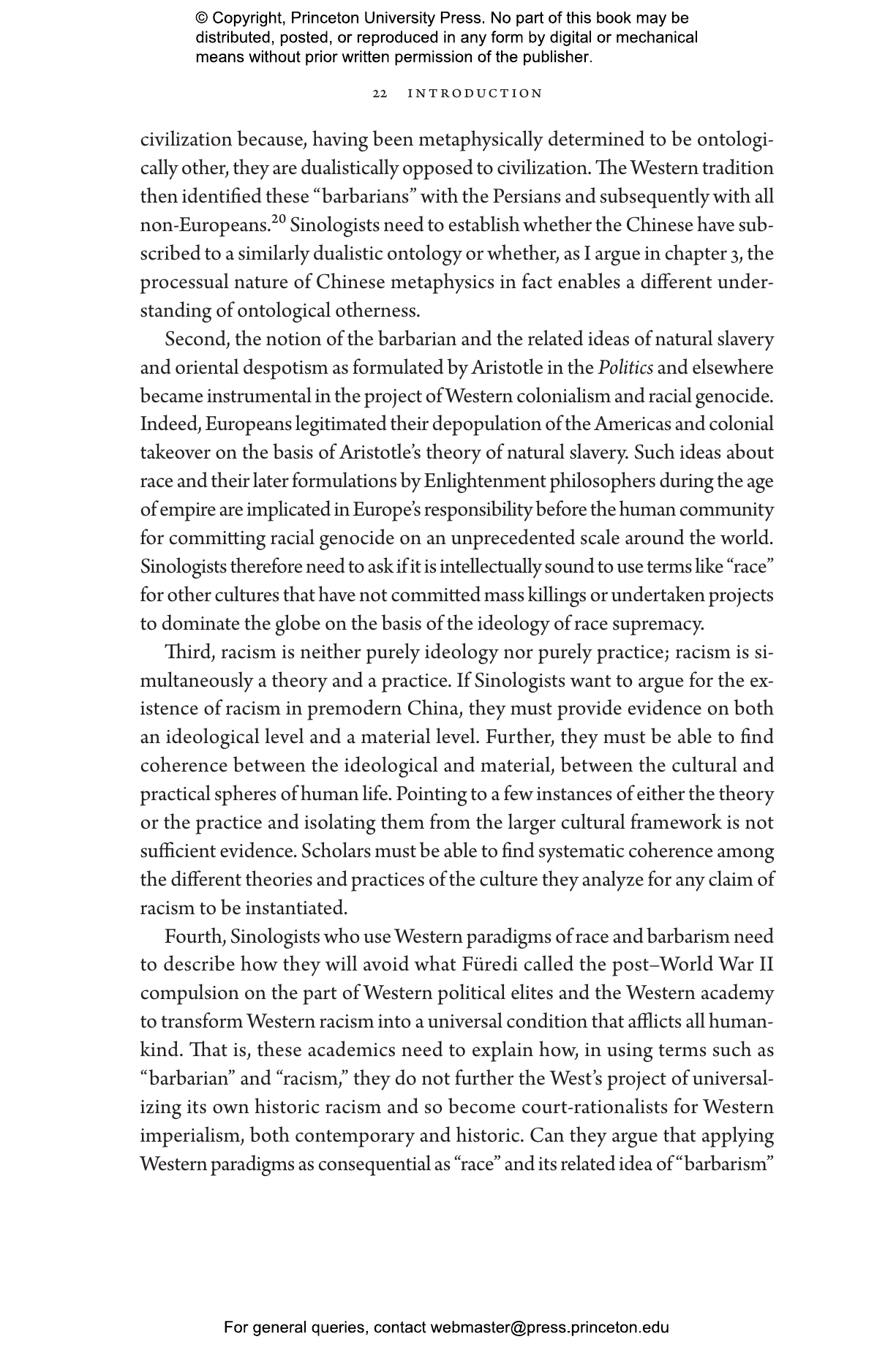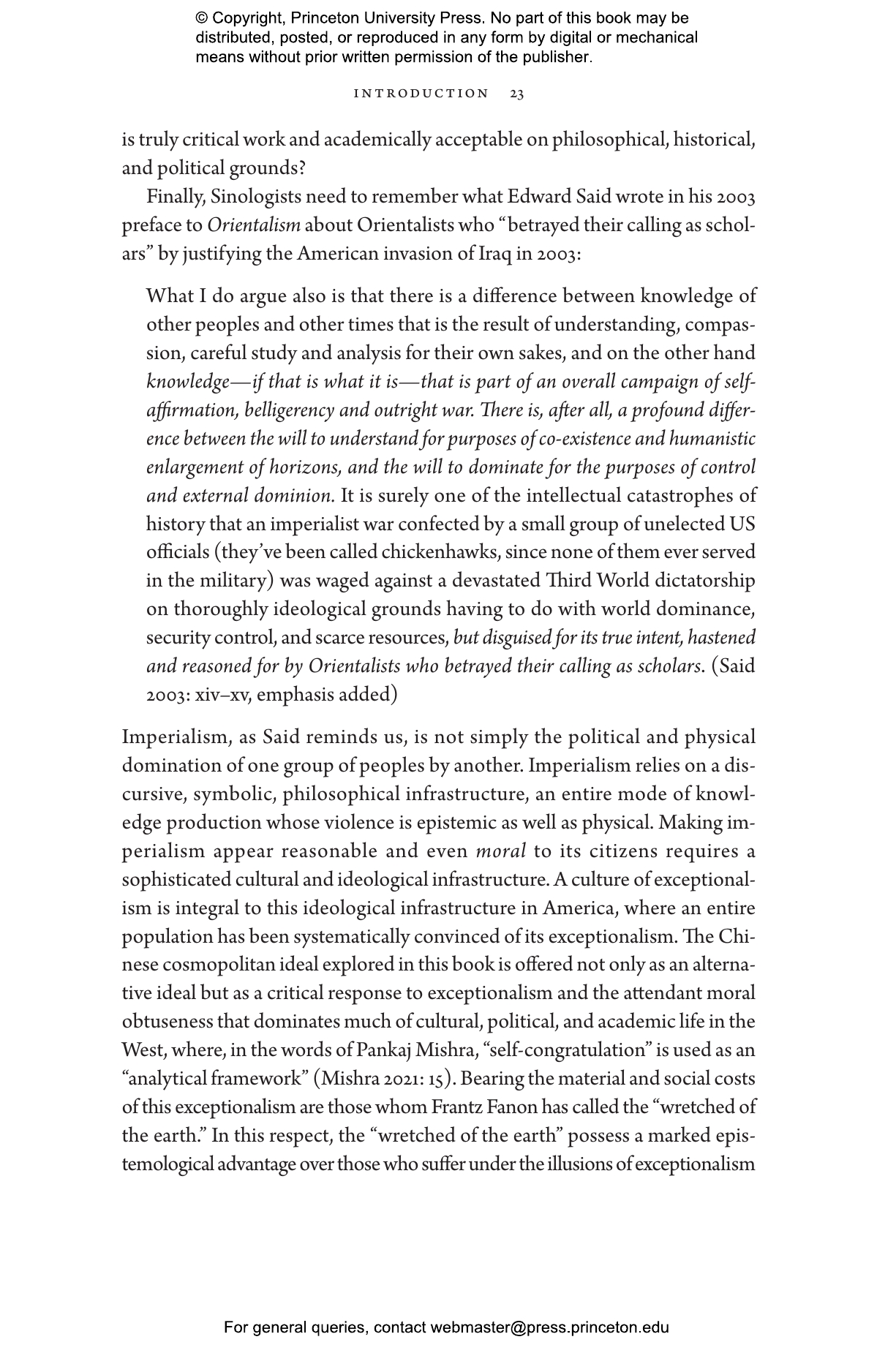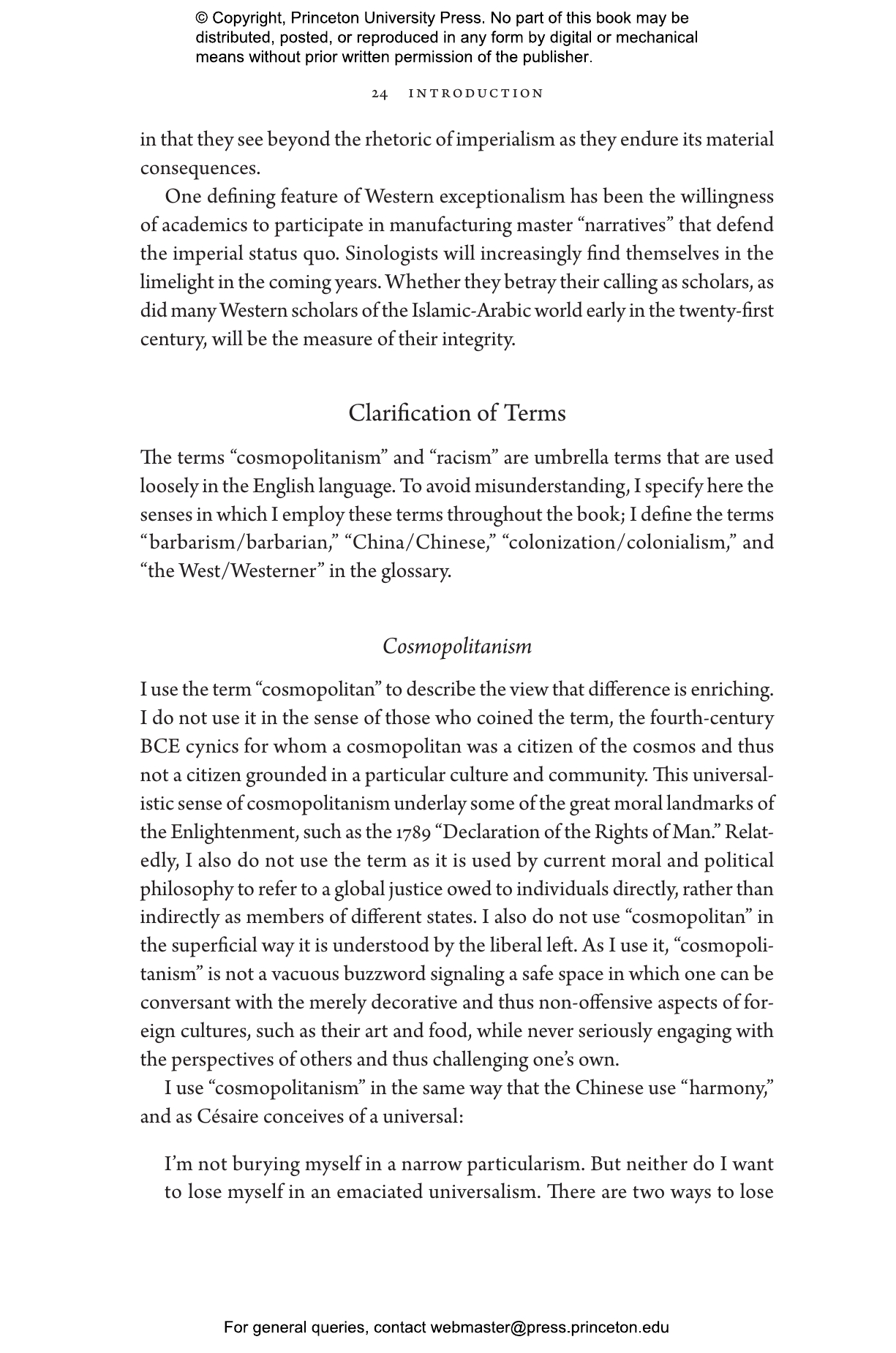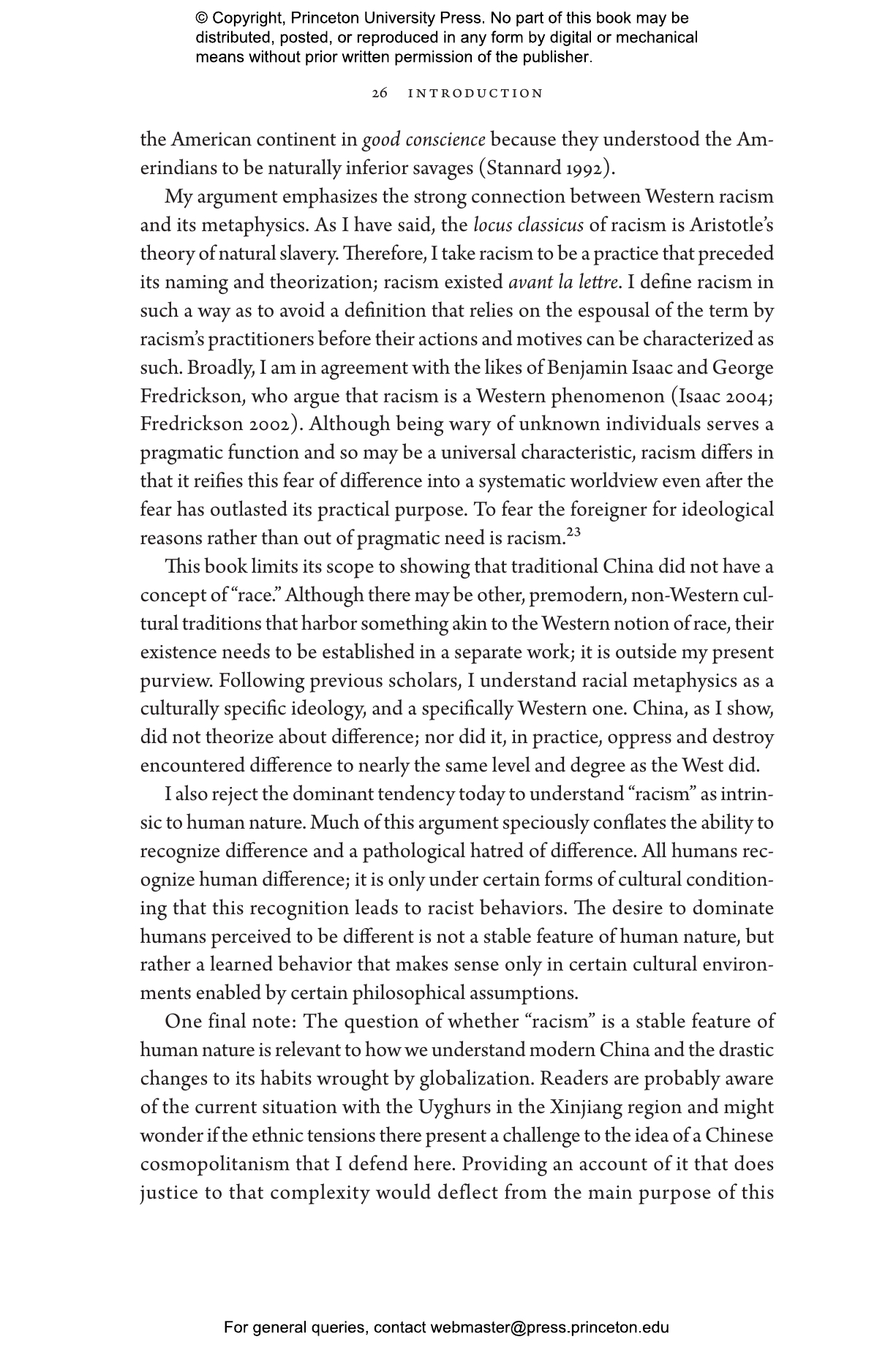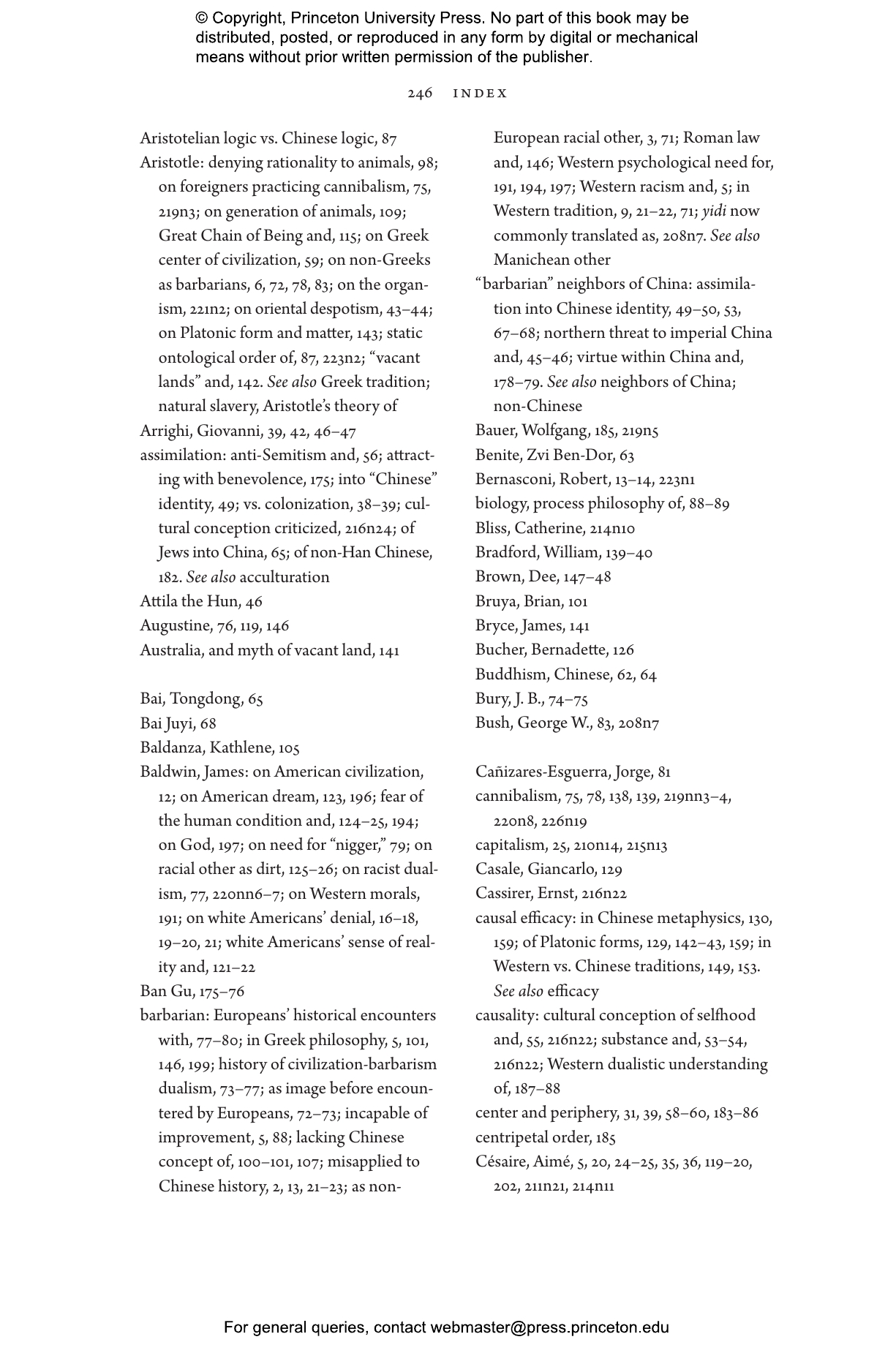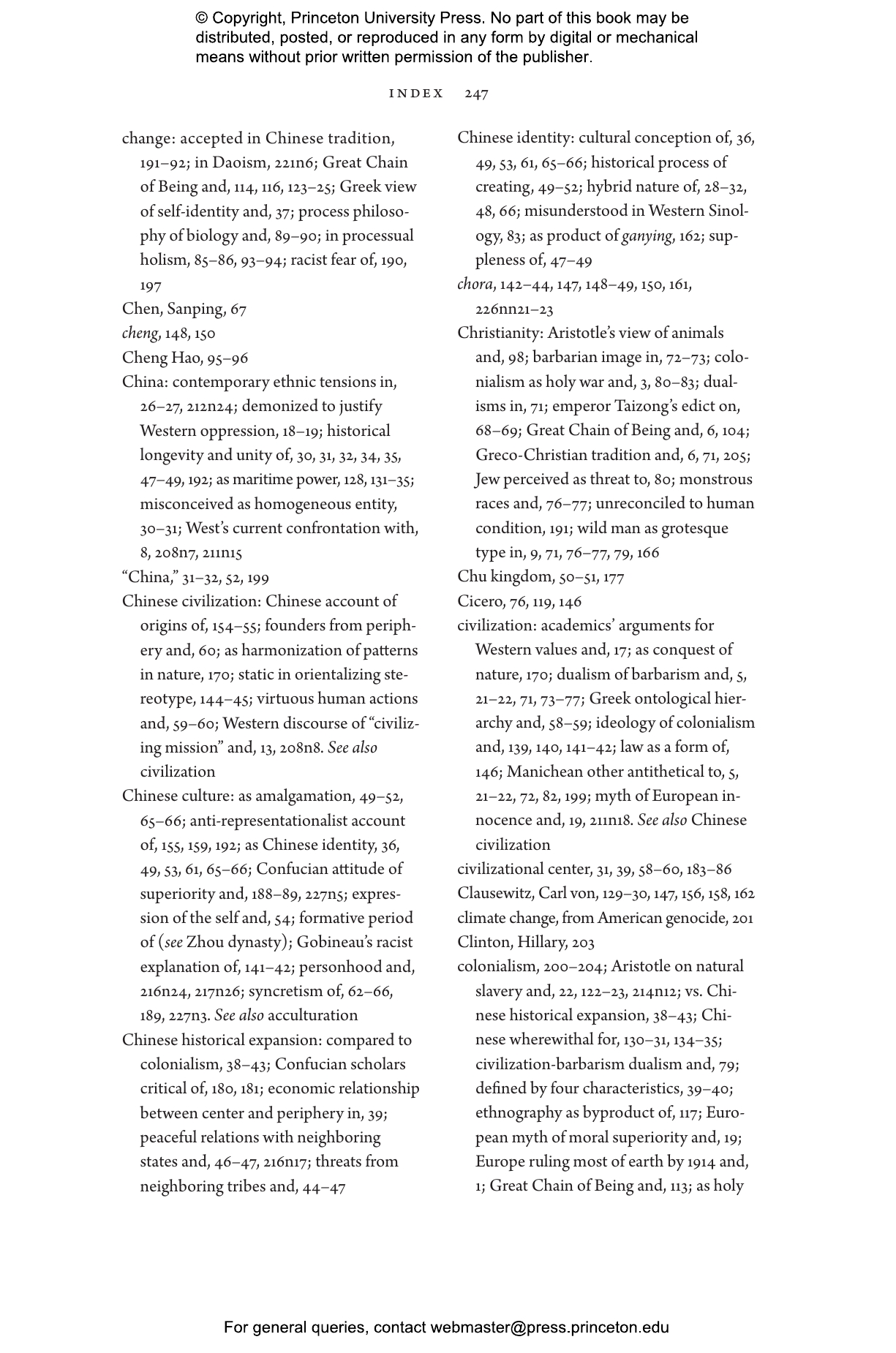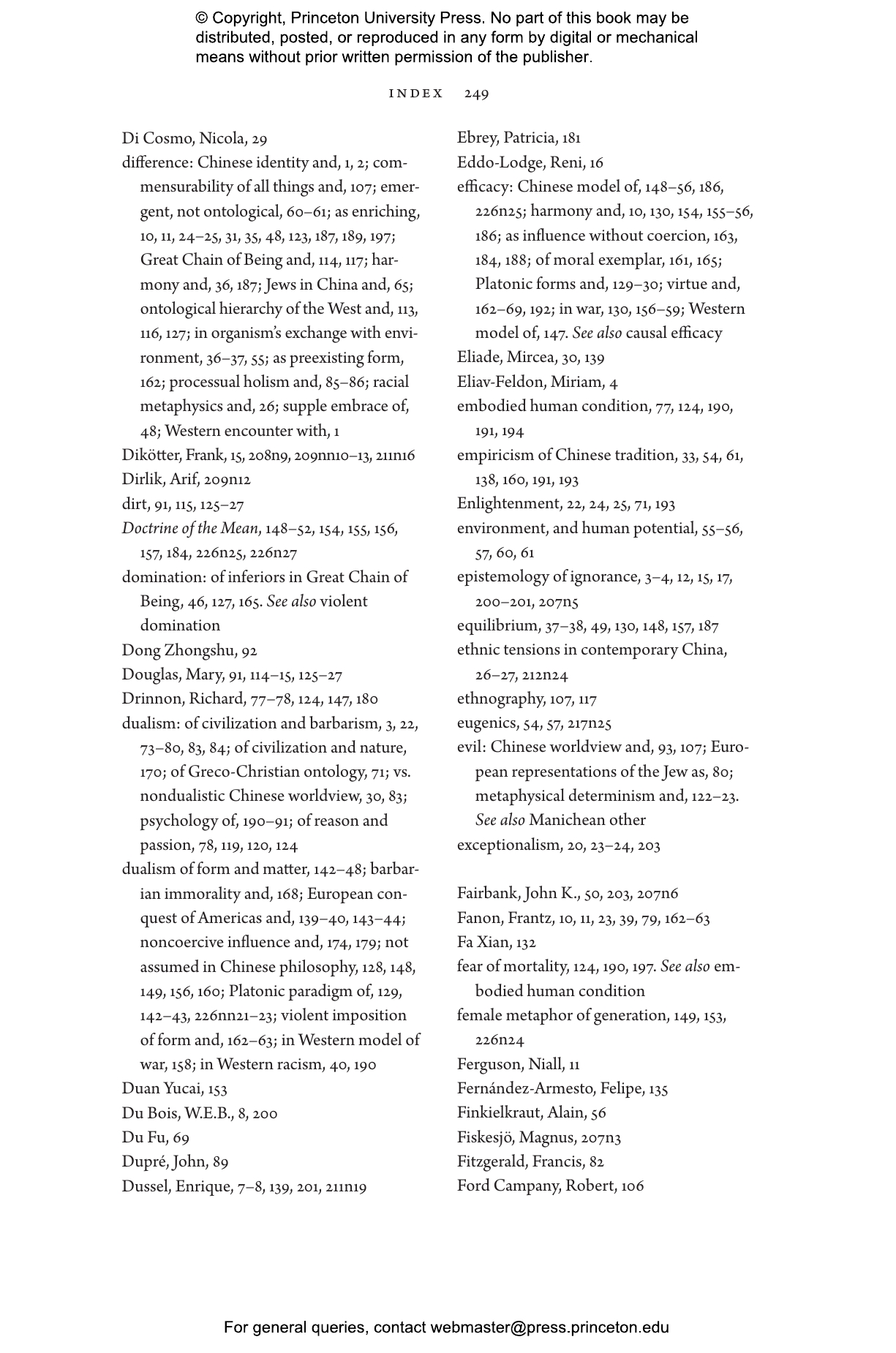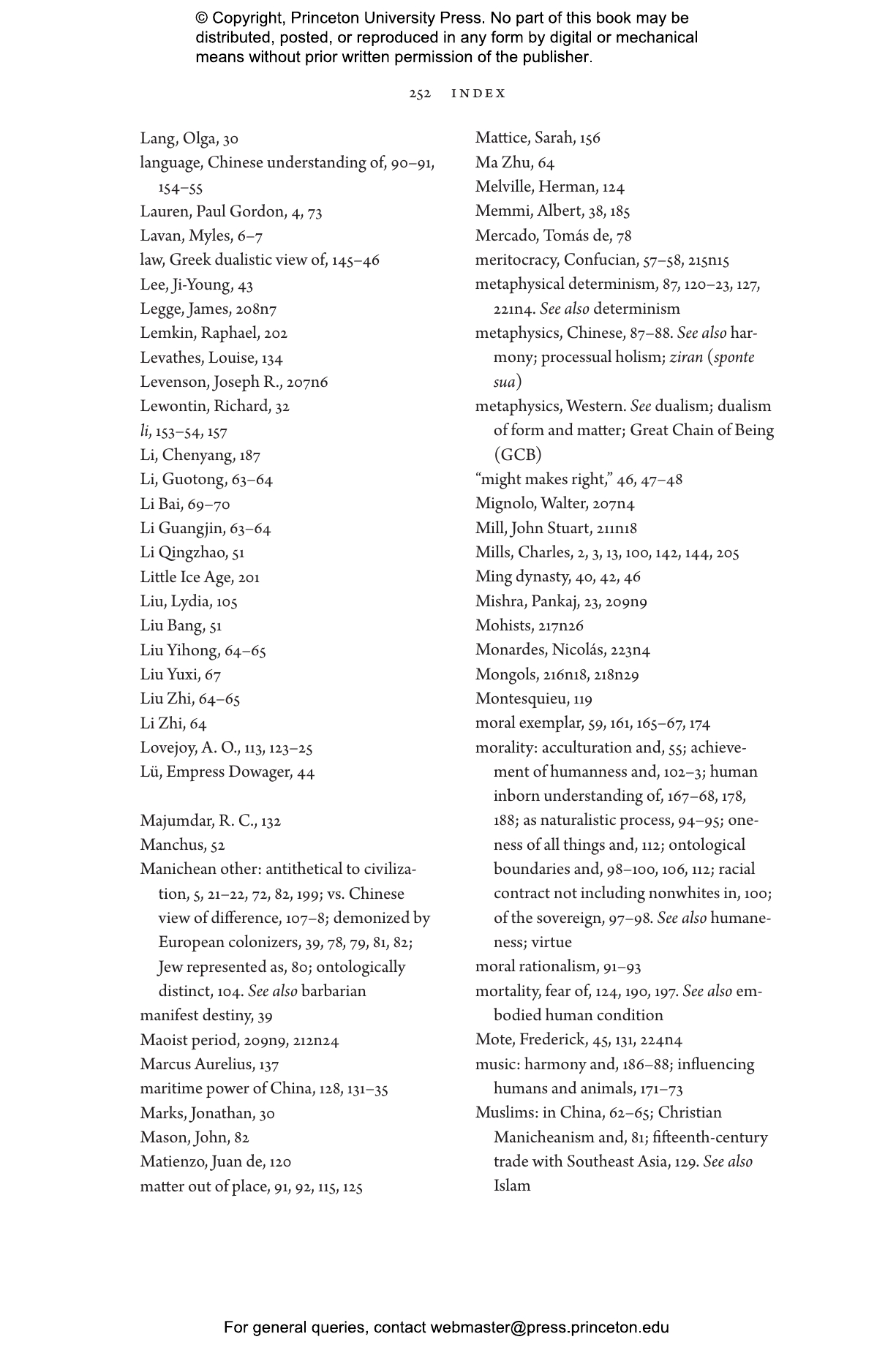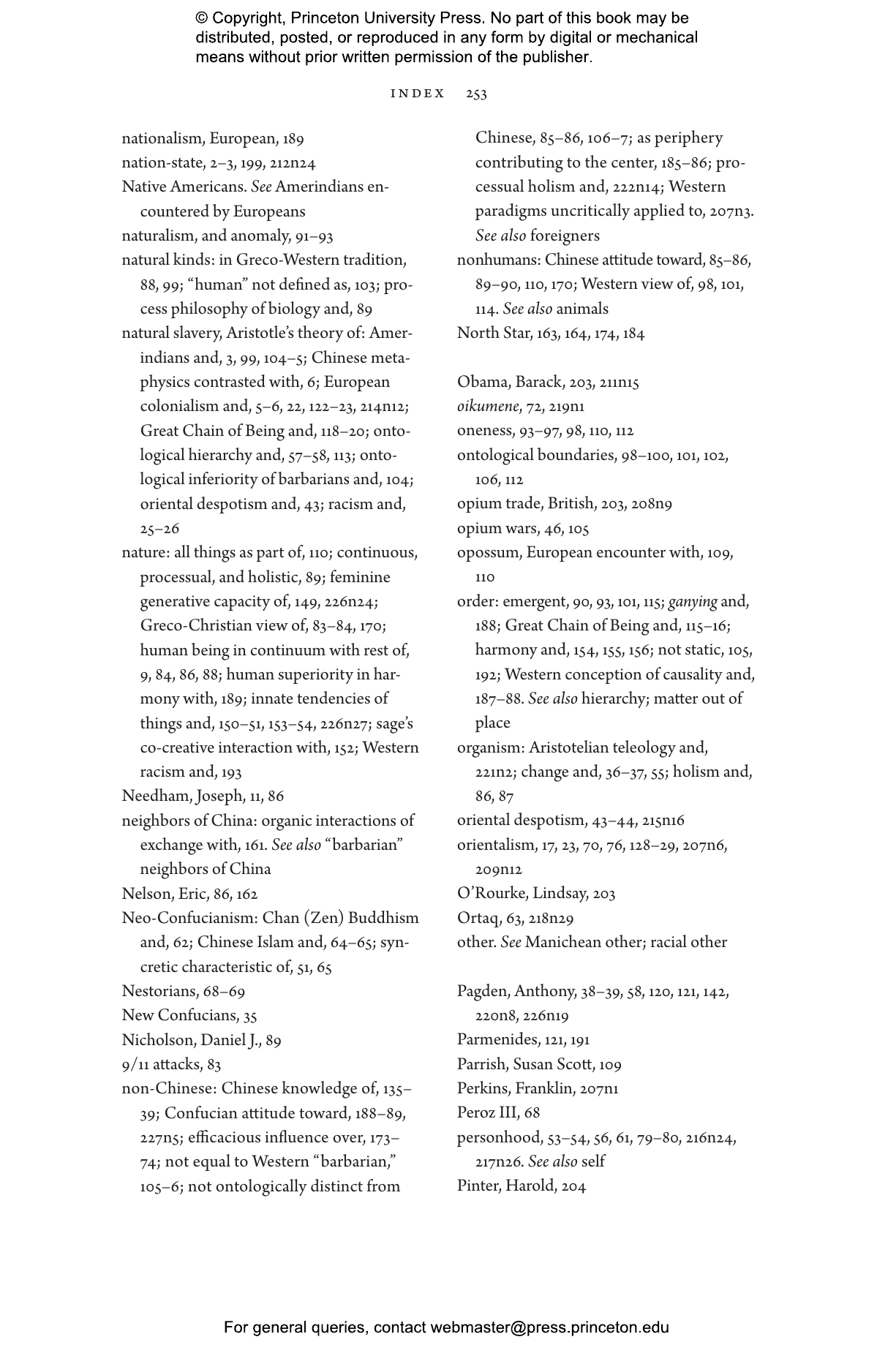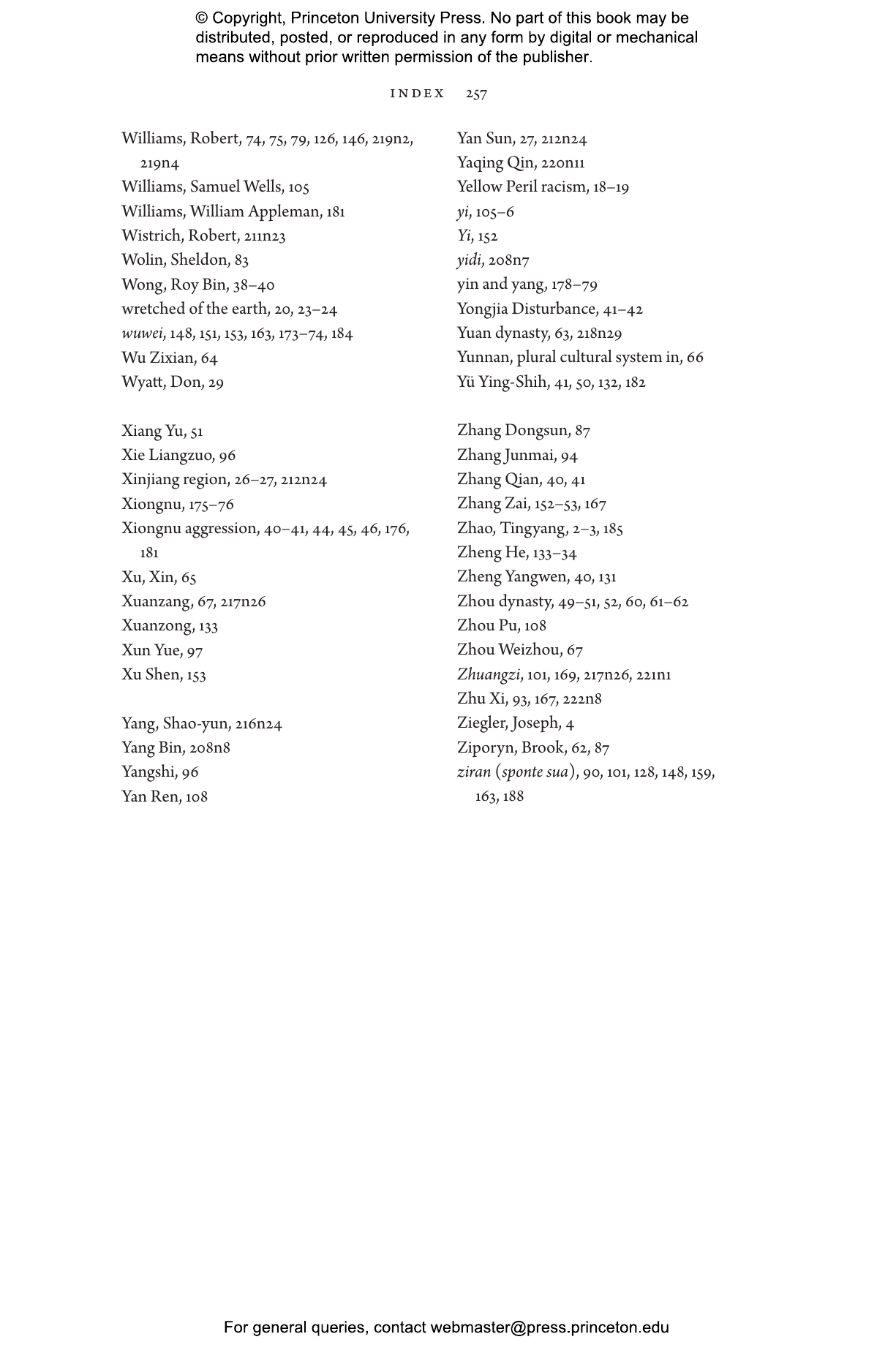Historically, the Western encounter with difference has been catastrophic: the extermination and displacement of aboriginal populations, the transatlantic slave trade, and colonialism. China, however, took a different historical path. In Chinese Cosmopolitanism, Shuchen Xiang argues that the Chinese cultural tradition was, from its formative beginnings and throughout its imperial history, a cosmopolitan melting pot that synthesized the different cultures that came into its orbit. Unlike the West, which cast its collisions with different cultures in Manichean terms of the ontologically irreconcilable difference between civilization and barbarism, China was a dynamic identity created out of difference. The reasons for this, Xiang argues, are philosophical: Chinese philosophy has the conceptual resources for providing alternative ways to understand pluralism.
Xiang explains that “Chinese” identity is not what the West understands as a racial identity; it is not a group of people related by common descent or heredity but rather a hybrid of coalescing cultures. To use the Western discourse of race to frame the Chinese view of non-Chinese, she argues, is a category error. Xiang shows that China was both internally cosmopolitan, embracing distinct peoples into a common identity, and externally cosmopolitan, having knowledge of faraway lands without an ideological need to subjugate them. Contrasting the Chinese understanding of efficacy—described as “harmony”—with the Western understanding of order, she argues that the Chinese sought to gain influence over others by having them spontaneously accept the virtue of one’s position. These ideas from Chinese philosophy, she contends, offer a new way to understand today’s multipolar world and can make a valuable contribution to contemporary discussions in the critical philosophy of race.
Awards and Recognition
- Honorable Mention for the Asia and Asian America Section Book Award, American Sociological Association
Shuchen Xiang is the Mount Hua professor of philosophy at Xidian University, China. She is the author of A Philosophical Defense of Culture: Perspectives from Confucianism and Cassirer, the coeditor of The Islamic-Confucian Synthesis in China, and the translator of History of Chinese Philosophy Through Its Key Terms.
"Eye-opening. . . . [Xiang] offers a deeply informed perspective to confront our own often half-understood or misunderstood beliefs about ourselves and others."—Alex Lo, South China Morning Post
"Chinese Cosmopolitanism is compelling in its stringent critique of Western worldviews rooted in racism, colonialism, and Eurocentrism. . . . [A]n illuminating and inspirational book."—Ban Wang, Chinese Studies International
"Provacative. . . . [T]here is still no diminishing the value of what Shuchen Xiang has achieved through Chinese Cosmopolitanism. Given its longstanding knowledge of foreign lands and peoples, many of which were ripe for exploitation, and its recognizable capacity over the ages for imposing its will especially in far-flung places beyond Inner and East Asia militarily whenever it could have elected to, exactly why China chose not to do so is a conundrum. Xiang has isolated and explicated in depth one reason for Chinese restraint that may prove more compelling, determinative, and influential on our understanding of this noninterventionist attitude than any other."—Don J. Wyatt, Journal of Chinese History
“The author succinctly connects Eurocentric metaphysics and ontology to the racialized discourses that shaped European imperialism, and she compellingly shows how Chinese philosophies provide alternative frameworks for cosmopolitanism. One of the book’s most original contributions is the author’s critique of sinological methods through the lens of critical race theory. This book is timely and important.”—Leah Kalmanson, University of North Texas
“Shuchen Xiang advances a series of original, nuanced, and thought-provoking arguments in this extraordinarily erudite book. She brings nuance to the study of Chinese history and the complex, hybrid formation of the people now globally known as ‘Chinese.’ The deftness of scholarship through which these conclusions are made evident is marked by a multitude of epistemic virtues, among which are not only multilingual nuance but also an eschewing of epistemic apartheid and the pitfalls of colonial sinology. The book’s implications for thought beyond Chinese philosophies are palpable. Chinese Cosmopolitanism is, in short, a tour de force and necessary book for our times and beyond.”—Lewis R. Gordon, author of Freedom, Justice, and Decolonization
“In this impassioned and densely documented work, Shuchen Xiang argues that the violence disfiguring Europe’s history of religious wars, colonialism, enslavement, and genocide is not the result of a faulty ‘national character,’ but may be a product of a tragically mistaken metaphysical framework. Taking Chinese history as a test case, the record shows that the absence of substance dualism in China overall permitted the development of less violent and more accommodating approaches to racial and cultural difference. Her bold thesis offers pragmatic alternatives for a world dangerously addicted to war as the option of first choice. All who care about the future of our fragile world will find in this book much of substance to reflect upon.”—Martin Powers, University of Michigan
